It was expected that media would be seen writing about the Lehman Brothers last weekend. Anniversaries always come as a perfect excuse to open the discussion about the wounds caused by the year 2008. While marking the tenth anniversary of the collapse of Lehman Brothers, once-mighty US investment bank, it is clear enough that the consequences of the worst financial crisis since the Great Depression of the 1930s, are not fading away. Last weekend in Berlin, European Alternatives used the very same excuse and organised the one-day Congress “What comes after nation-state” in collaboration with the International Literature Festival Berlin where thoughts for a future beyond the nation-state were discussed.
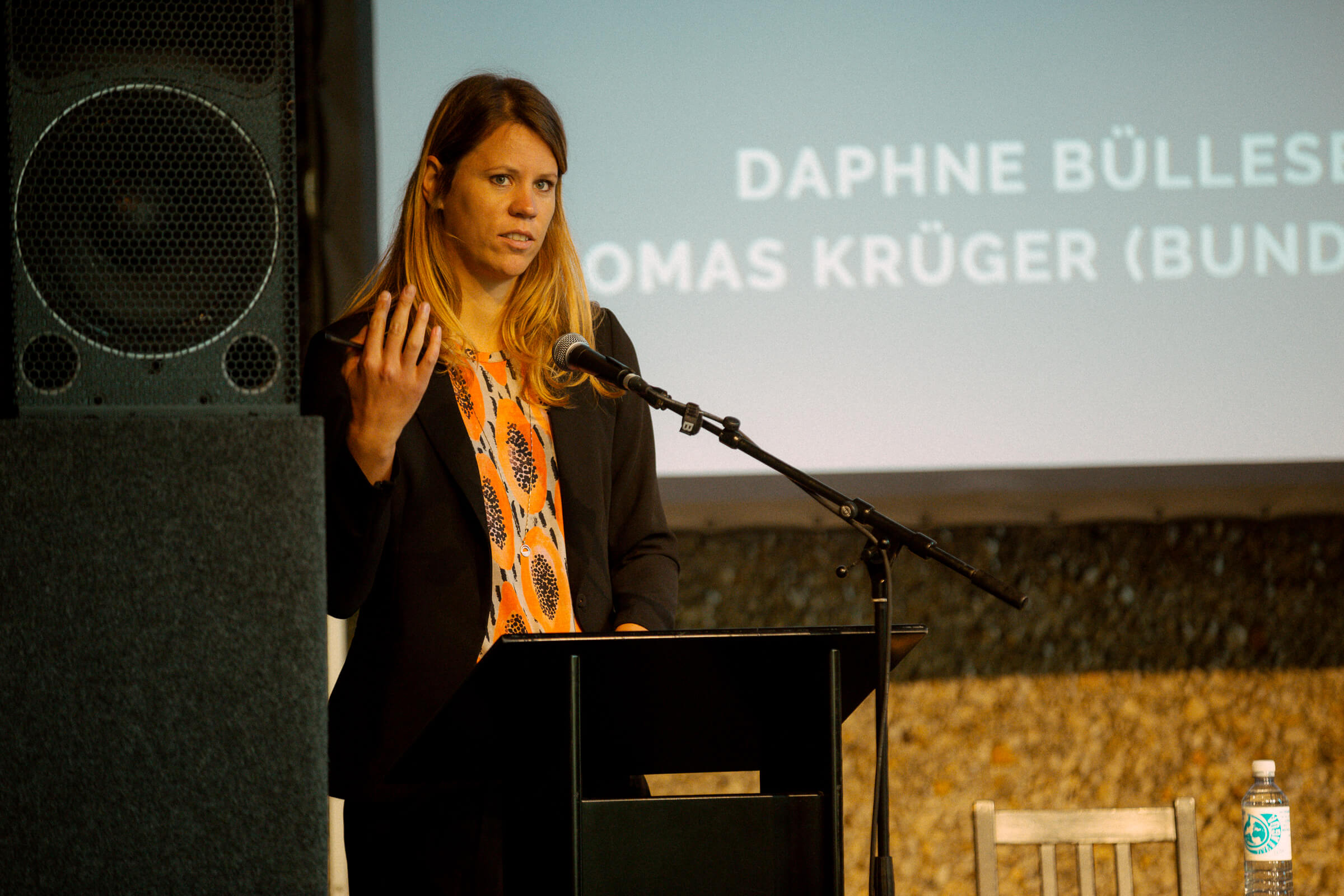
“We cannot move out of the a perpetual state of crisis if we do not move beyond the exclusionary demarcations of the nation state”, said Daphne Büllesbach, director of European Alternatives and of the Congress, “asking this question today, on the 10th anniversary of the collapse of Lehman Brothers, seems right. Little has the established system of international finance learned from the crisis”, she argued.
The program was explicitly dense with interruptions of artistic performative sessions between the panels. However, this format mustn’t be mistaken: performative sessions brought so much needed personal, often intimate, perspective on how different shapes of crisis intervene with our lives. “What has my country done for me, and what have I done in return?” Instead, she writes a letter to her father. To her “home country”, whom she addresses as “Papa”. Or maybe it really is her father after all. A powerful man who can represent everything: state, fatherland, family,” asks actress Selin Kavak while reading Nicoleta Esinencu’s associative monologue “FUCK YOU, Eu.ro.pe”.
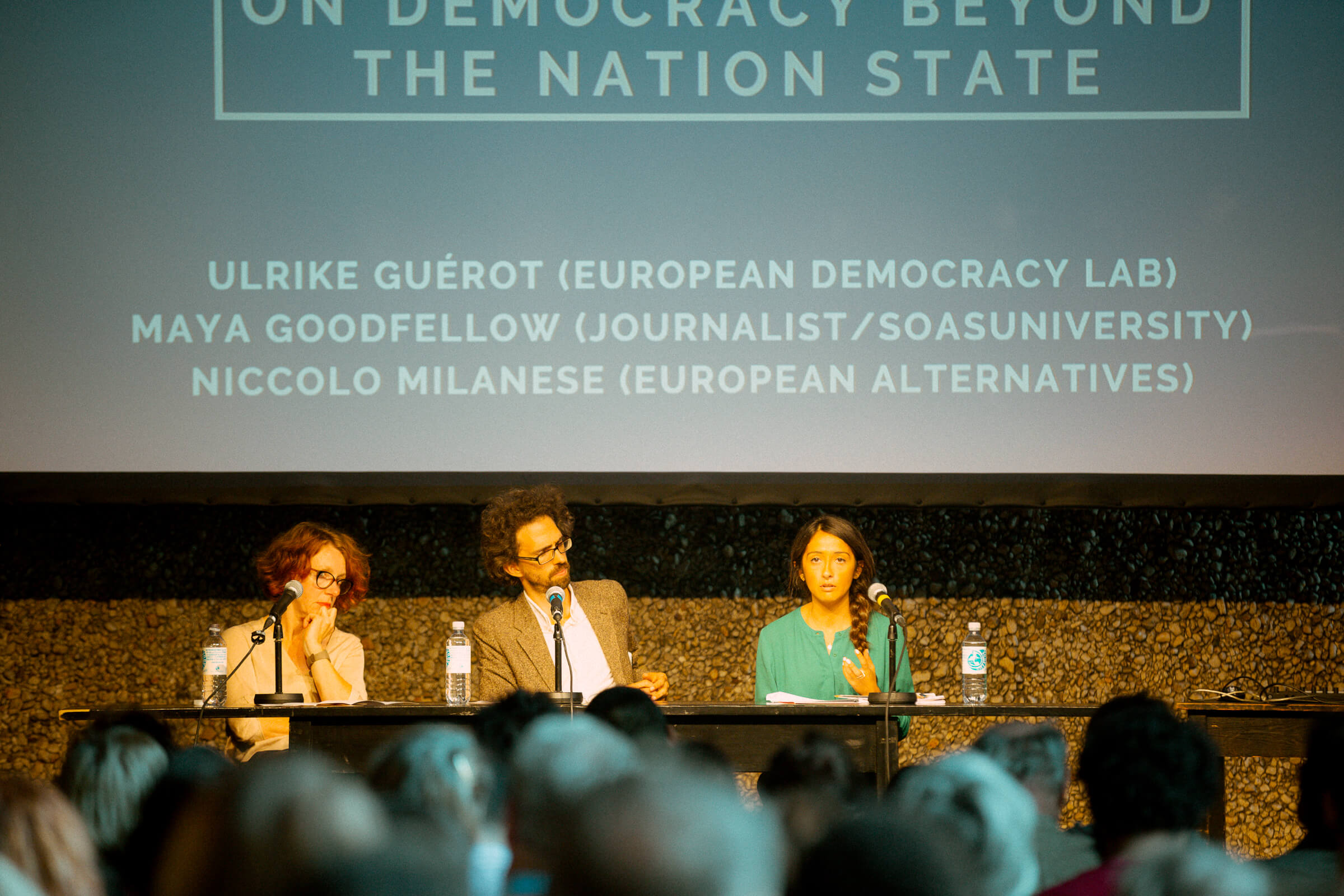
Although this monologue could have easily been placed before the first panel “On Democracy Beyond the Nation State”, it was instead read afterwards. “In school, history is re-written every day,” served as an accurate denouement of the monologue on what had been previously said during the panel moderated by Niccolo Milanese, co-founder of European Alternatives. Maya Goodfellow, writer and researcher, mostly focused on politics, immigration, gender and race, argues that “Europe cannot be thought of in isolation from the world that it subdued, enslaved, and from which its richness was extracted, and the history and present of imperialism needs to be centre stage in a debate on Europe.” Ulrike Guérot, political thinker, founder and director of the European Democracy Lab (EDL), points out that “the European Republic in its idea is a multicultural, multi-ethnic entity” where in principle there is no reason why we can’t overcome today’s invented differences, claiming that if the conversation will continue to be focussed on race “we are going to fall into a trap, because the discussion needs to be about class.”
There are many instances in which we have seen a failure of transnational solidarity in the European Union. There is a question that has been raised many times in the past few years: can cities become a space for a new European conception of transnational solidarity? The panel “Solidarity and Cities of Change” with Gesine Schwan, Raul Sanchez Cedillo and Manuela Bojadzijev was opened with a video message from Mimmo Lucano, who unfortunately couldn’t be in Berlin for the Congress. Domenico Mimmo Lucano is the mayor of Riace, in southern Italy. He gained worldwide attention through his innovative approach to dealing with refugees. About 450 refugees have settled in Riace among the 1,800 inhabitants of the village, revitalising it and preventing the closure of the village school.
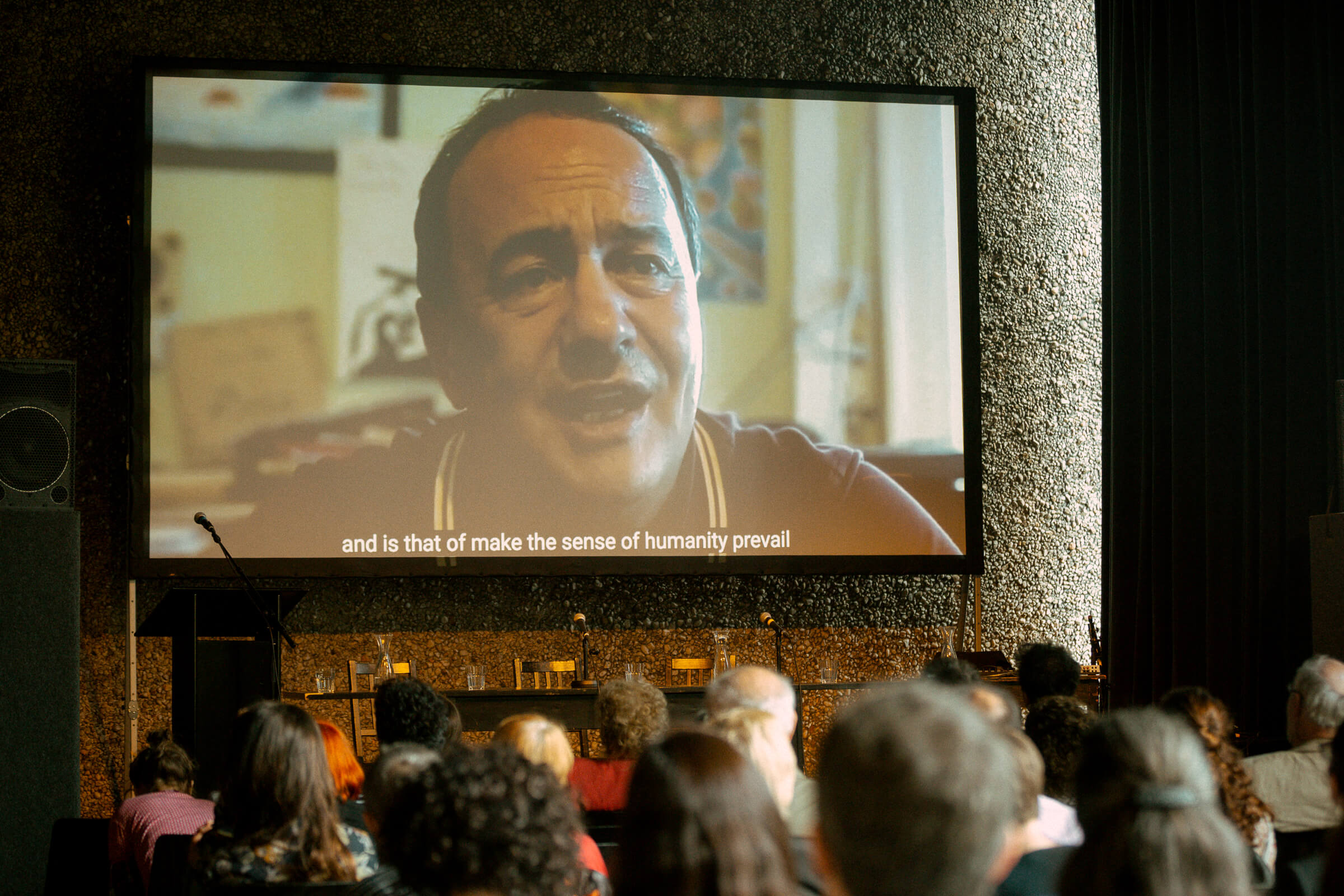
Lucano addressed the audience with simple, but powerful messages. “I basically think that there is just one solution to migration, to make a sense of humanity prevail, the respect for the human being”, adding that if this [solidarity] has been possible in Riace, a place that struggles every day, where living conditions are very difficult, it means that it is possible everywhere else. “We have a reason to be afraid, but I believe that democracy and human rights, a sense of dignity and brotherhood cannot be defeated”, he concluded. But how can cities gain power in order to practice hospitality?
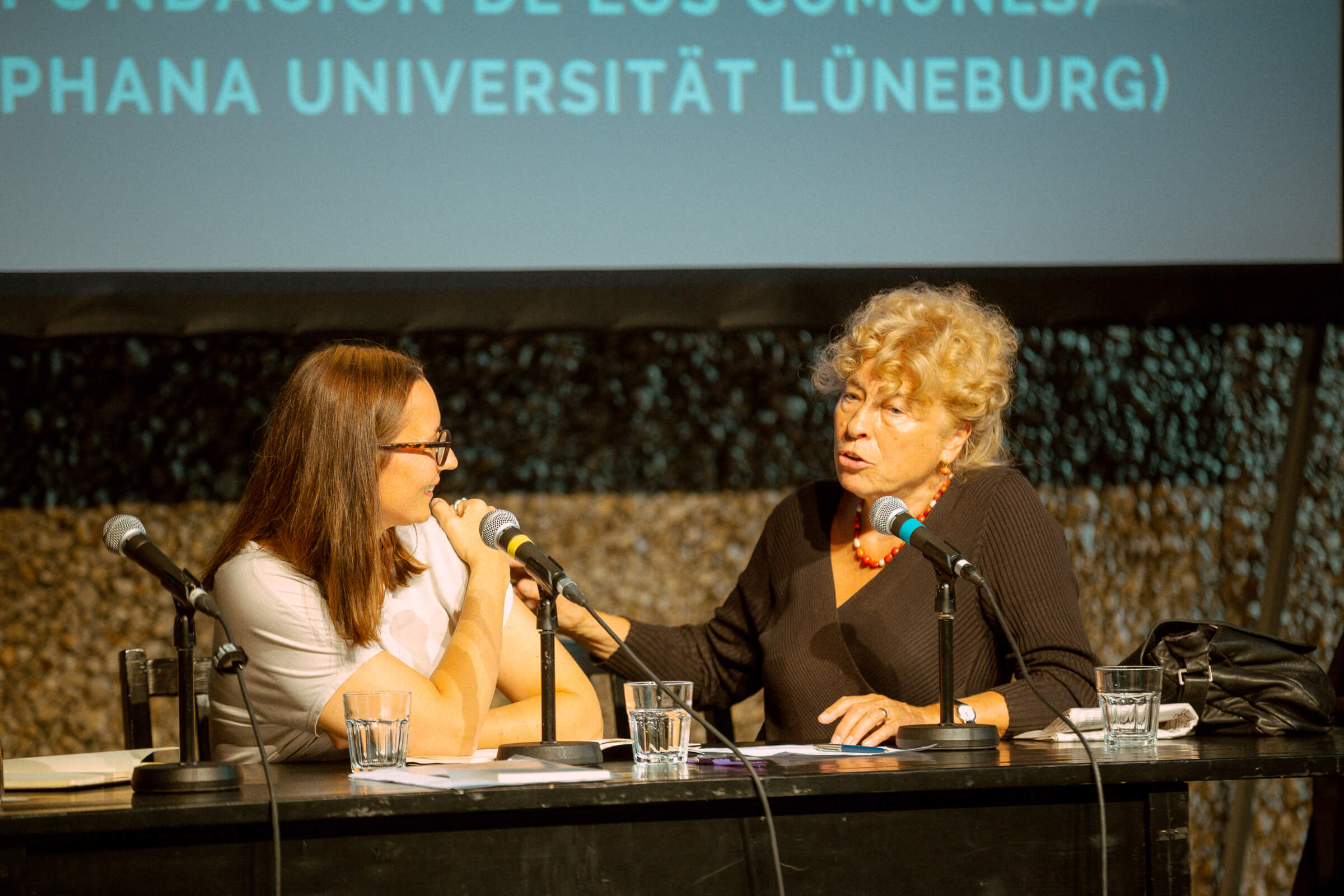
Gesine Schwan, German politician and professor, has already put forward the idea of a European Fund for municipalities to welcome refugees. She argues that “Bruxelles is still very much nation-state oriented, leaving communities and municipalities almost without any power within the institutions and construction of the EU”. Manuela Bojadzijev, a professor of Globalized Cultures at Leuphana University shared her experience from Chemnitz, the city that has been recovering after being the scene of a far-right demonstration and of much violence, saying that “there is no way around tackling the question of racism, and that’s the condition to tackle racism as well.”
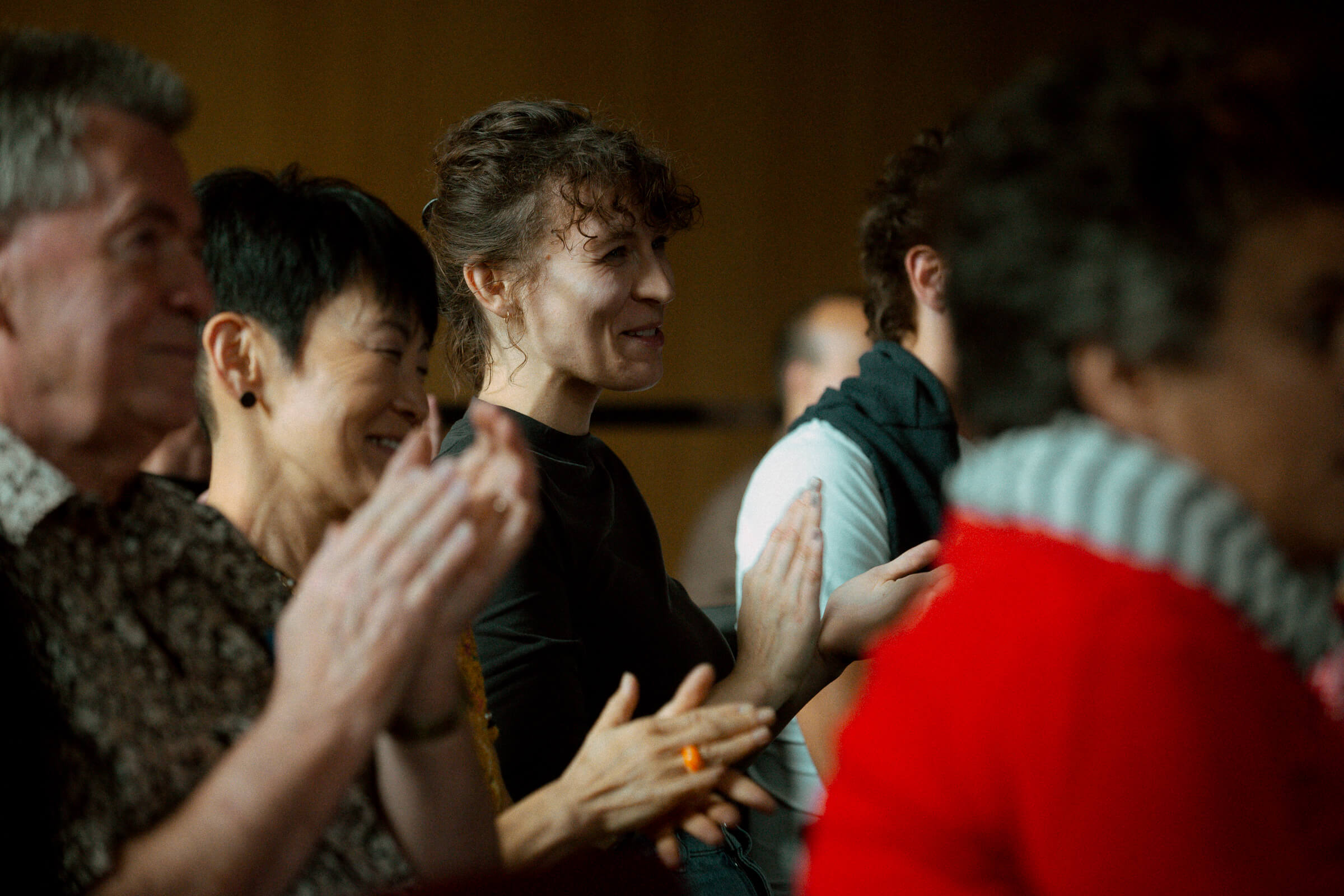
Following the reading of the text by Sivan Ben Yishai, “Daddy loves you”, a generation portrait about emancipation from patriarchy, and of the third part of her tetralogy Let The Blood Come out to Show Them, the conversation moved to the “Movements Beyond the Nation State” taking into account numerous feminist mobilisations in Europe but also around the world in recent years. In a conversation with Marta Cillero, two feminist activists, Kinga Stanczuk, from Poland, and Marta Arrizabalaga, from Spain, explained how tremendous empowerment of women took place in Poland, two years ago, during the Black Protests and the International Women’s’ Strike in Spain. Although the conservative government in Poland still attempts to restrict access to abortion, Stanczuk says “we are all there, we’ve seen each other in the streets and the message of the protest radicalised, and we know that we can mobilise much more” adding that 10 years ago that simply wouldn’t have been possible in Poland.
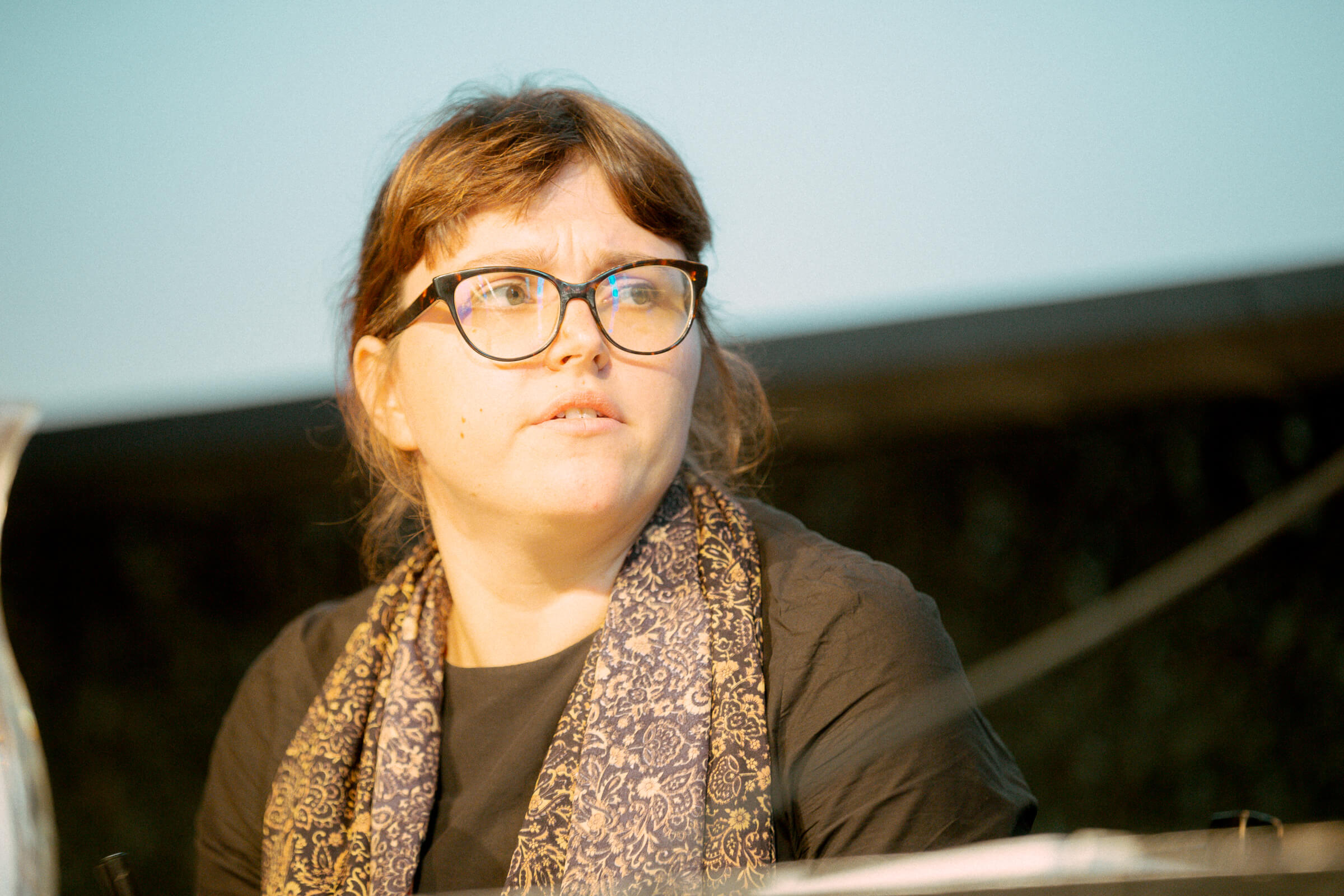
Earlier this year, a massive women’s strike in Spain took place: for 24 hours, women were called on to drop everything and take to the streets and protest. “The most important moments are maybe debates from weeks before, focused on four areas: workers’ strike, students’ strike, care and consumption strike” says Arrizabalaga, explaining how the strike affected the system in general but also the private sphere where unpaid labour is a constant phenomenon.
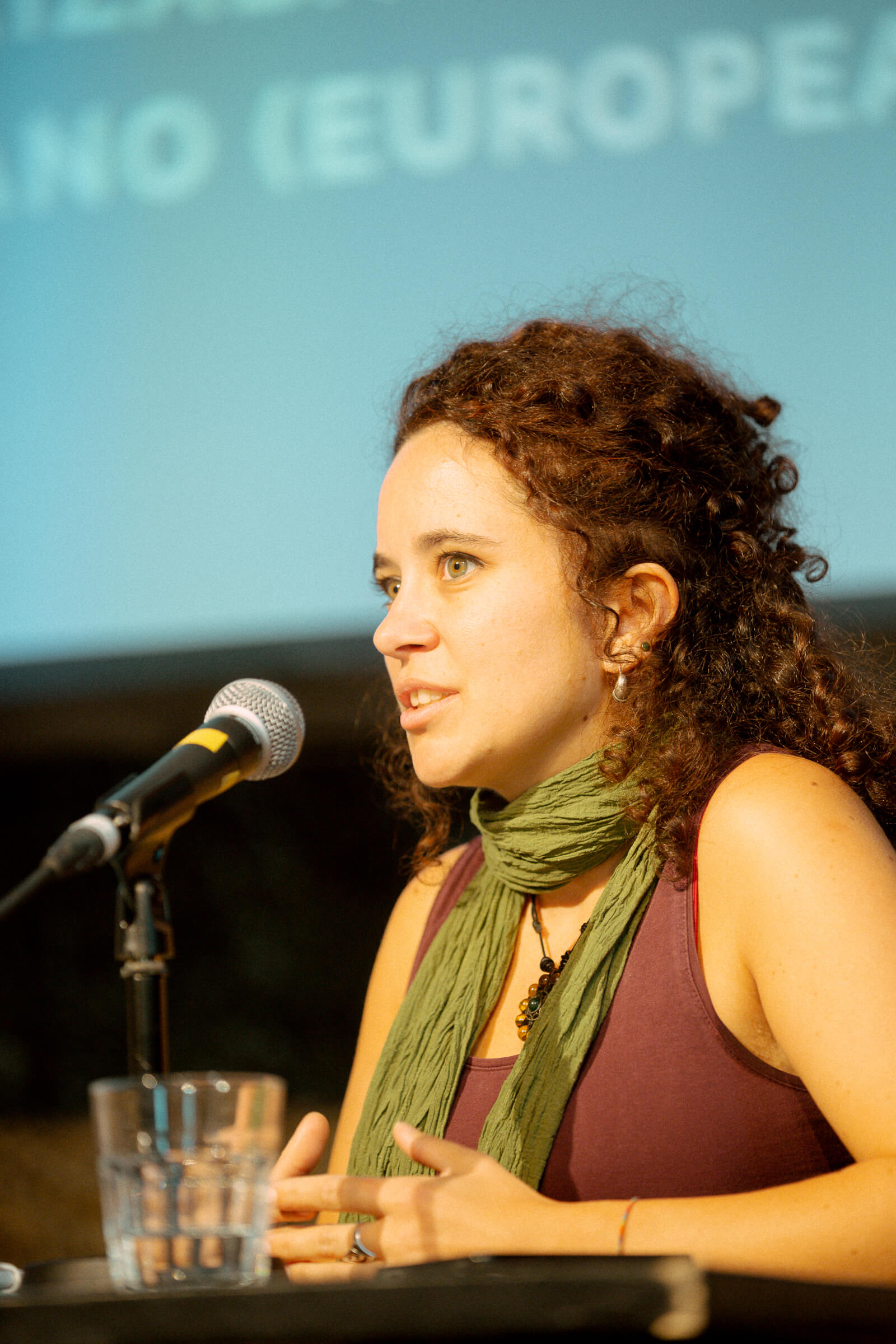
To go back to the Lehman Brothers, prior to the panel “10 Years of Lehman Brothers Collapse – O Brother, Where Art Thou?”, artist Ariel Nil Levy read the Protocol of the Lehman Brothers, taking very long breaks between the sentences, almost reminding us that although the crash happened a decade ago, consequences have never stopped echoing. The panelists were Ann Pettifor, analyst of the global financial system, Brett Scott, journalist, campaigner and author and Harald Schumann, German author and journalist, editor at Tagesspiegel, with a focus on the financial industry.
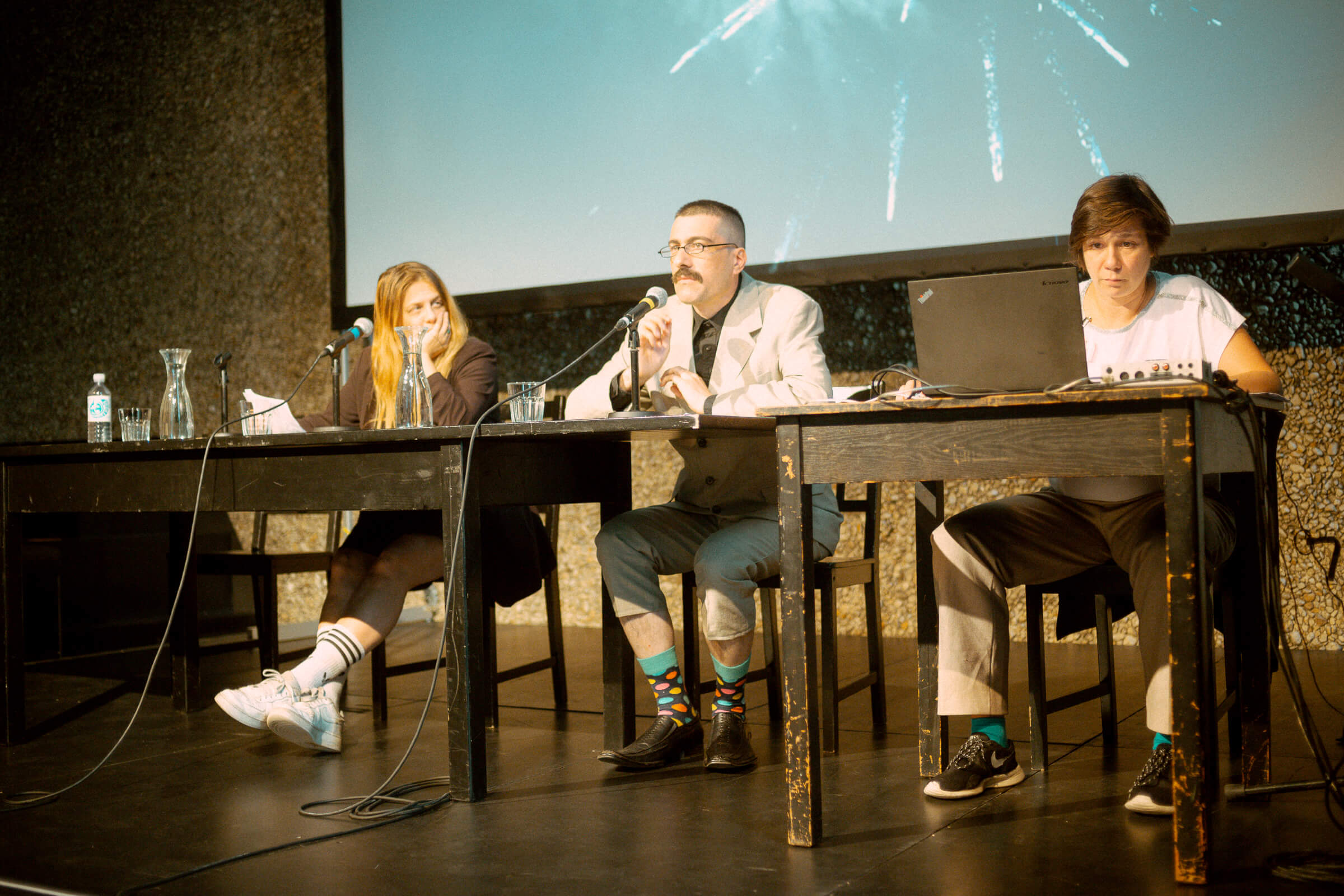
“There is some shady stuff going on,” says one of the characters in the movie The Big Short, capturing moments prior to the global collapse of the financial system. We were reminded of the film by the opening speech that Ann Pettifor delivered. “We have all benefited, we love the globalised system of finance, it means that we can go on holiday, I can come here with a little card and pay coffee just by waving it into a little machine,” warned Pettifor ironically.
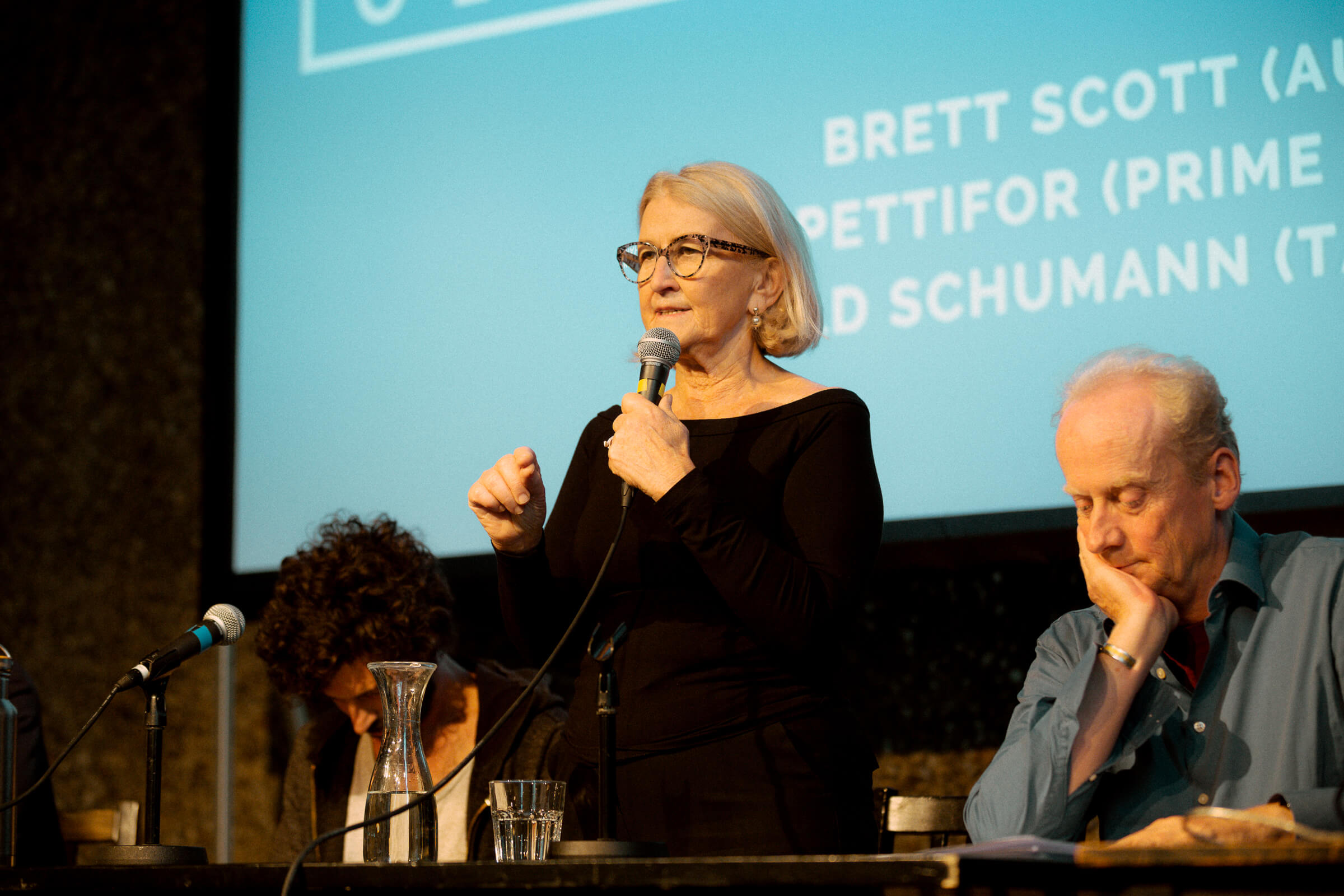
“Maybe the biggest difference between US and Britain is that the German and French bankers managed to hide their role it the crisis, and redefined the crisis as a sovereign debt crisis of the Irish, Spanish, Portuguese, Greeks, while they themselves had done those bad investments, but rejected any responsibility,” said Harald Schumann. “All those governments should be held accountable together”, he adds. “It is easy to tame something once you have identified who is in control of it,” says Brett Scott, but the reality is not like that, “the problem with changing these systems is that they are deeply entrenched and are deeply abstract, and everybody is part of them. If you want to change the giant net of a structure, you really have to react to the multiple fronts at once, if you want to have any impact”. Ann Pettifor reminded us of how in 1998 thousands of people gathered in Birmingham, at the G8 summit, and said: “cancel the debt!”: “The politicians couldn’t believe what was happening. What that taught me was: you can explain everything to people, they are not stupid.” To show how the financial crisis affected his life, Felipe G. Gil, a cultural activist, member of ZEMOS98, shared a personal and biographical journey: “Live together, die alone”, a storytelling performance with remixes and excerpts from popular culture.
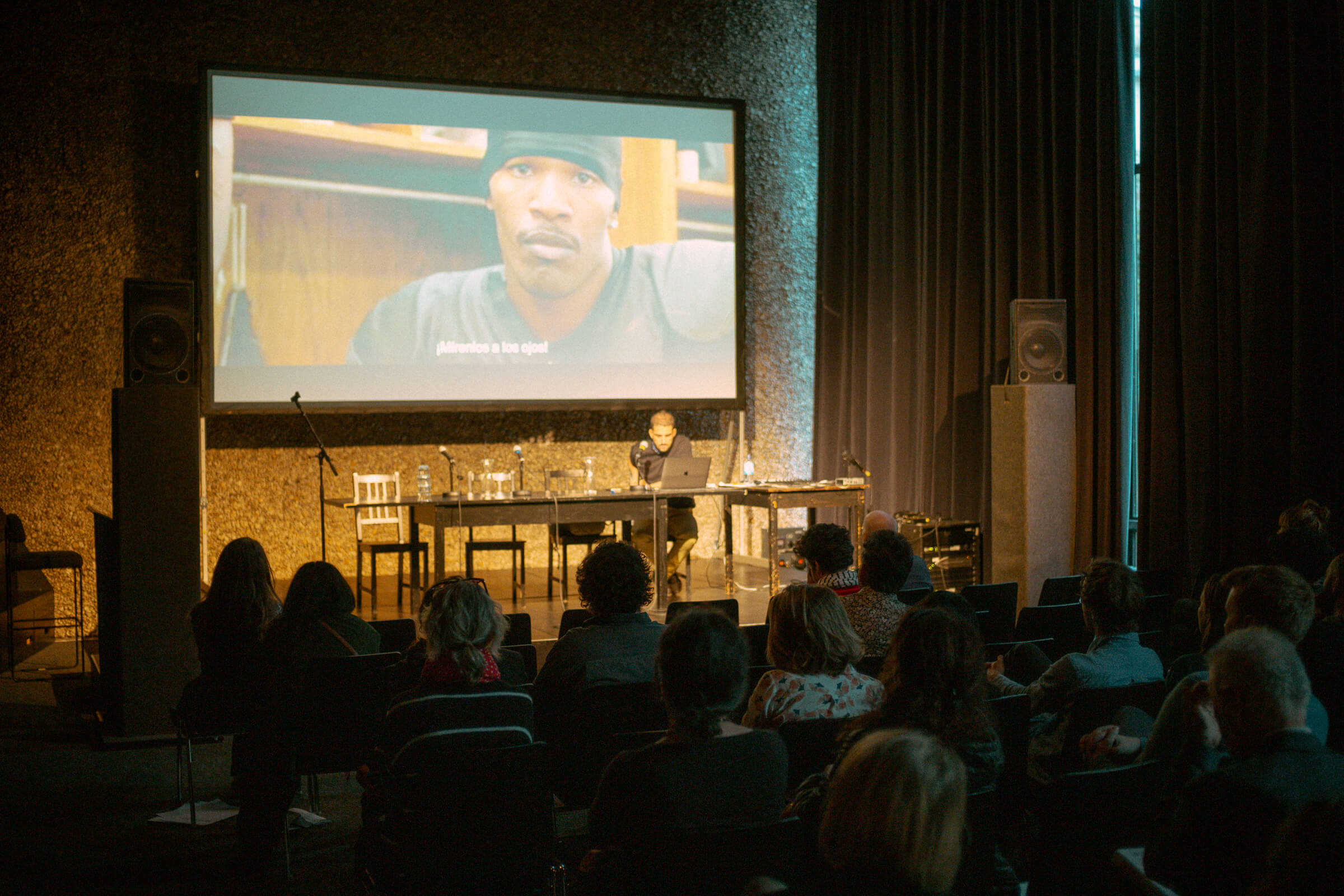
“We need a trigger, for any reaction,” said Katharina Schultens and Mehdi Moradpour in the final staged reading of the text “die katastrophenberichte häufen sich, ich fühl sie nicht” by Maren Kames, just before the very last panel “What’s More Extreme than the Centre?”. It wasn’t easy to remain concentrated for the duration of such a dense schedule, especially rich in concrete proposals.
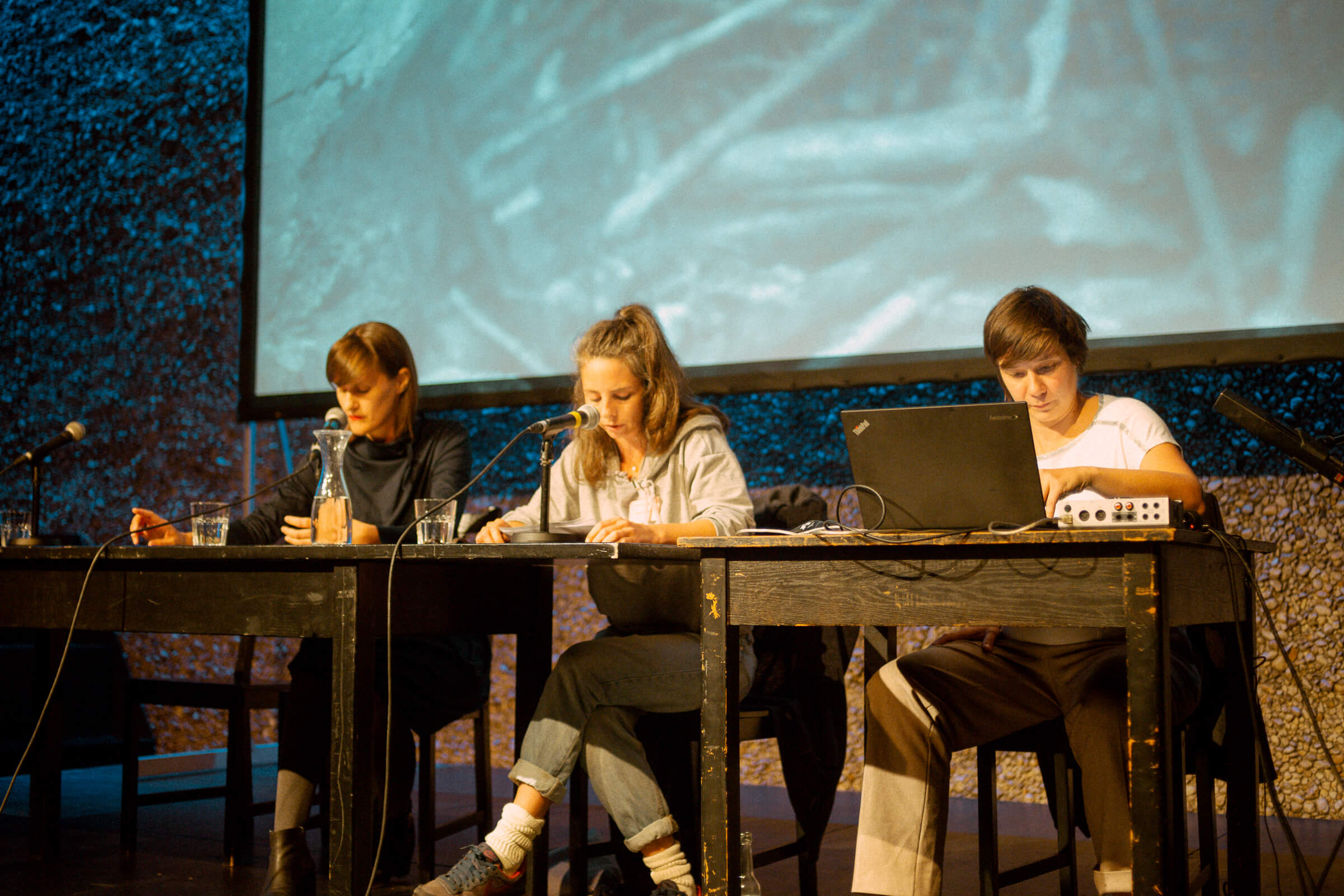
“There is no plan, when the monster leaves the stage”, should be the title of a panel, said Lorenzo Marsili, co-founder of European Alternatives, highlighting the sentence pronounced earlier during the reading. “We can see Europe unite in a very exclusionary manner”, says Marsili. Alberto Alemanno, an academic, author and political activist claims that “responsibility extends way beyond the centre, and many argue that the left is responsible. The reason why most of those mainstream parties embraced the “monsters” is not only a short-term electoral result, but also a crisis of imagination.” Agnieszka Dziemianowicz-Bąk, social activist, and a politician from Poland, think that there is no better example than Poland to illustrate how the political centre is responsible for the growth of right-wing populism. According to Agnieszka Dziemianowicz-Bąk “the Neoliberalist agenda left very little space in the public sphere for any alternative,” claiming that moreover, in 10 years of governance, liberal government refused to deal with any mayor political issue. “When in 2015 right-wing movements started constructing xenophobic narratives against refugees, the government establishment absorbed this completely, and just followed the path”. Sergey Lagodinsky, author and lawyer from Heinrich-Böll-Stiftung, asks “Who can we still save? Who’s souls can we still save?” warning that self-proclaimed liberal parties with their rhetoric often pushed the voters towards all those extreme parties.
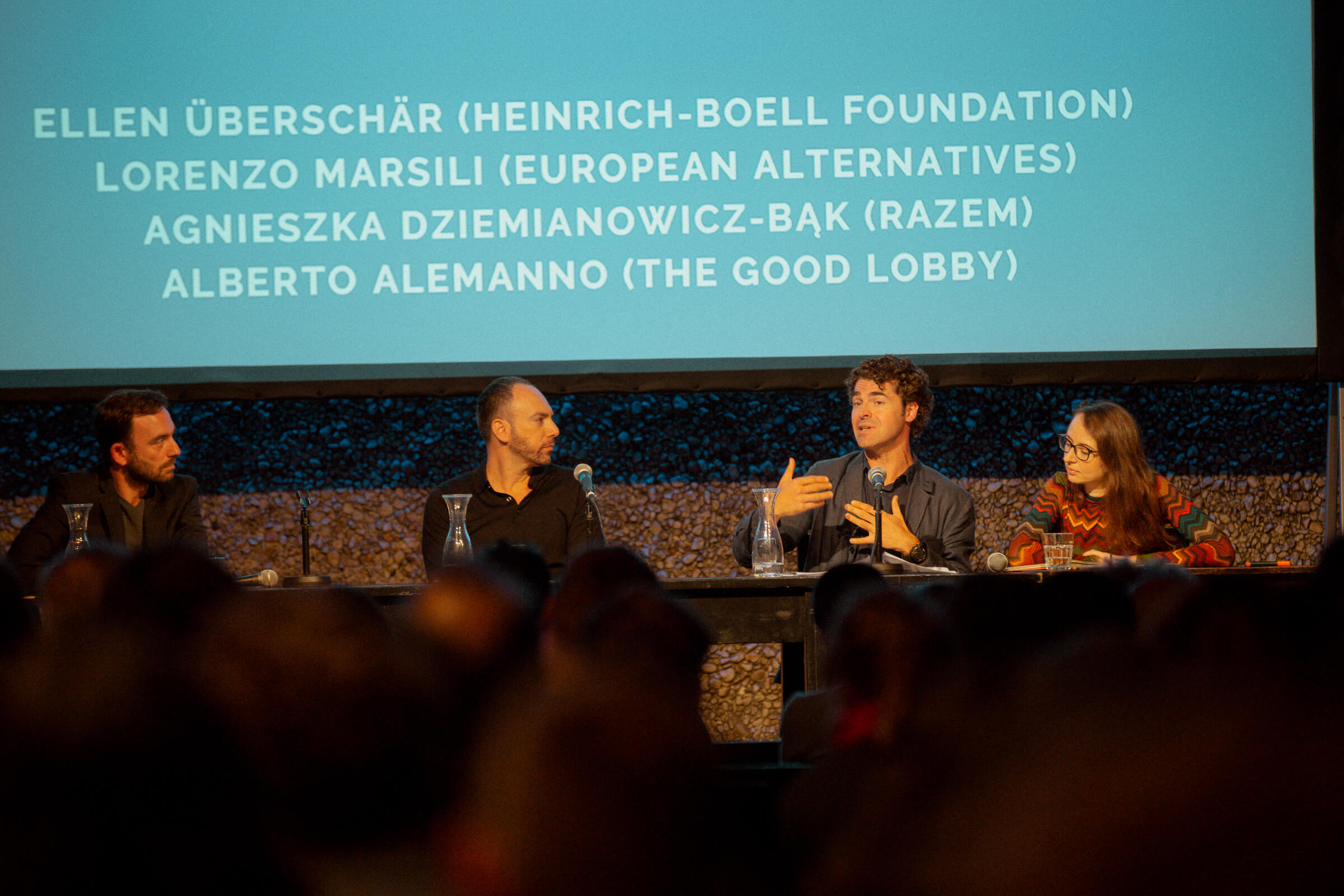
When the almost 10 hours long Congress came to an end, there were still questions going around. What Büllesbach said in her opening speech early in the morning, could have been easily said in the closing one, late in the evening, “we need to make proposals and not only react, we need to be on the proposing seat, be the drivers of our future.”
![Political Critique [DISCONTINUED]](https://politicalcritique.org/wp-content/uploads/2015/09/Political-Critique-LOGO.png)
![Political Critique [DISCONTINUED]](https://politicalcritique.org/wp-content/uploads/2015/09/Political-Critique-LOGO-2.png)